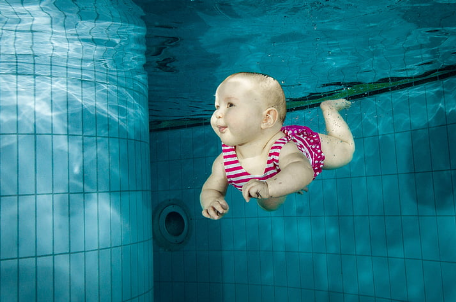 Teaching children to swim from a young age have a number of positive aspects, in fact they will in turn develop to be champion swimmers in their age, rather in early stages.
Teaching children to swim from a young age have a number of positive aspects, in fact they will in turn develop to be champion swimmers in their age, rather in early stages.
Apart from that, it must be explained that with regards to teaching children to swim at an early age, among the major benefits is that kids don’t have almost any fear of water or even drowning at a early age – which they are likely to develop when they become adults. Actually, it is broadly known and recognized that when babies are placed into water, chances are good that they can have the ability to swim for safety, even though they have never been trained the right way to swim. This is because; swimming is basically an in-born behavior; it does not need to be taught. Yet, many of us will need to be trained the right way to swim due to the fact we had not used to swimming in the early formative ages. As time passes, instincts and fear will end up taking a back seat.
From a health and fitness perspective as well, it has to be explained that teaching children to swim from a young age undoubtedly possesses a number of benefits. For example, kids that swim on a regular basis generally have better physiques and also few health conditions. This is the reason why teach your child to swim will improve their overall vitality and strength for long and then they develop to be health-conscious and athletic.
Additionally, aside from the physical aspect, it is often observed that mental health of children that learn to swim while very young is commonly much superior. For example, it has been relatively more successful that swimming makes it possible for the mind to focus better and to stay concentrated on the task at hand. Keeping that in mind, children that swim on a regular basis usually perform far better in academics and at the same time emerge out of academic life as perfected and energetic people.
Undoubtedly, learning how to swim from a young age also has a rub off impact well into adult life. Basically, swimming from this point of view is likely to be a habit which is carefully put into practice and pursued in riper years as well, whereby the several mental and also physical health improvements of swimming also continue to pay off at later stages of adult life.
